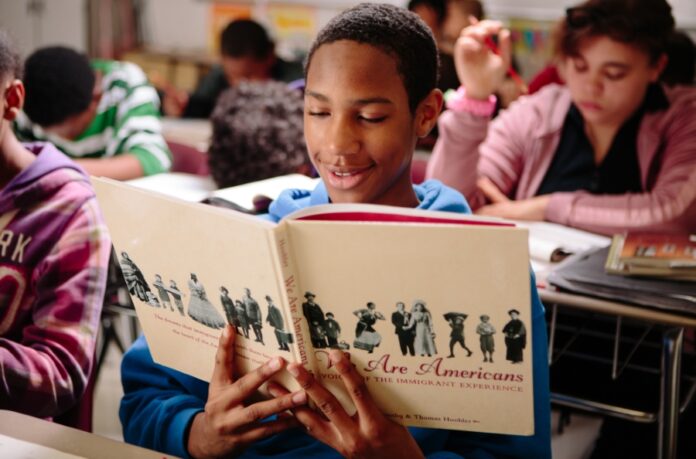
With school winding down, many parents are planning activities for their children. Hopefully reading will be one of them! Studies show that children who do not read or have access to books during the summer lose up to 2 months of reading performance. Such losses accumulate during the elementary school years so that by the time a child enters middle school he/she may be 2 1/2 years behind. All children, whether from low, middle or upper income families, may fall victim to what educators call “summer slide” if not provided with summer reading opportunities. So how can we prevent this slide, or better yet accelerate reading growth? Here are a few easy ideas that don’t require expensive camp fees or summer school:
- Visit your local library! Most public libraries have summer reading programs. Sign your child up and make visiting the library a weekly routine. The Roanoke City Public Libraries have a variety of options for children of all ages. The 2016 “On Your Mark, Get Set, Read” summer reading program will feature storytellers, theatres, magicians, karate, art, sports, games and prizes.
- Help your child find “right fit” books at the library or book store. Right fit books are books that are of high interest to your child and are not beyond their reading level. You can use the five finger test to determine if the book is too difficult for your child. Open the book to a page with many words. Have your child begin reading the text. Hold up a finger for each word he/she does not know. If you have 4 or 5 fingers up, the text may be too difficult for your child to read independently. But let your child pick freely! Parents can always read books that are not on the child’s independent level. Most children, even middle schoolers, enjoy being read to by a caregiver.
- Be sure your child reads at LEAST 20 minutes a day. According to research, a child who reads only 1 minute a day outside of school will learn 8,000 words by the end of sixth grade, whereas a student who reads 20 minutes outside of school will learn 1,800,000 words! Create the space and time for this. Designate a “reading nook” in your home. Make it comfortable, cozy and appealing for your child.
- If reading isn’t one of your child’s top priorities, you may need to set up an incentive program. Reading could be done after dinner with the promise of a popsicle treat afterwards. Perhaps a chart or reading log would be a motivating visual reminder of progress. Set a good example. If you want to grow a reader, be a reader! When your child sees you reading and enjoying a book or magazine article, you are sending a message that reading is important and valuable. Talk about what you are reading at the dinner table. Plan for family reading time, a similar version of what schools call “DEAR”—Drop Everything And Read. Make it relaxing and fun.
- Read to your child. When you read to your child, he/she hears the rhythm of language. Be sure to read with expression! Changing your voice for different characters and increasing your volume during exciting parts are only a few ways to keep children engaged.
- Read with your child – explore different types of reading such as poetry. For little ones, poetry is great way to improve phonemic awareness skills as poetry often incorporates rhyme. For older children, partner reading is effective with longer texts. In partner reading, the adult reads one page and the child reads another.
- Engage your child in reading. For little ones, do a picture walk of a book before reading it. Have the child look at the pictures and talk about them as you flip through the pages. Ask the child to make predictions about the story as your read, and revisions as you continue. Afterwards, ask the child what the book made them think or wonder about.
- Read for different purposes. Reading directions for a recipe or directions for assembling a toy are fun ways of incorporating reading into everyday activities. Going on a family trip? Let your child do some research on the destination. No money for travel to exotic destinations? Let your children choose some non-fiction books about different cultures. Cook recipes from the countries or listen to music from that culture. You could easily travel around the world through books! Summer is a great time for children to slow down and step into a new schedule. It doesn’t take much to ensure that enrichment takes place over the holiday. Creating opportunities for your child to engage with good books is an easy way to keep academic momentum going throughout the summer months.
Kate Ericsson
